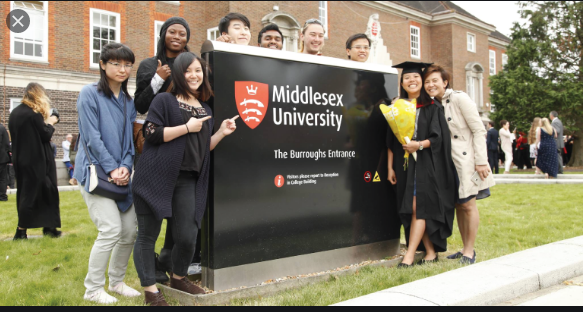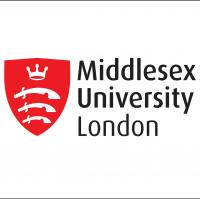LLM Human Rights Law with Integrated Placement
Overview
This course is designed to enable students to specialise in subjects related to human rights law, equipping them with comprehensive knowledge of international and regional human rights regimes and mechanisms, and critical assessment of their suitability to address contemporary challenges, such as the impact of business on the enjoyment of rights.
Why study LLM Human Rights Law with Integrated Placement at Middlesex University?
You will deepen and broaden your knowledge of law as an academic subject; acquiring a systematic understanding of legal processes, methods and concepts, of the social and political context in which legal processes take place and of appropriate theoretical conceptions of law.
By maximising your academic potential and refining your problem-solving skills in a transnational context through the acquisition of systematic and critical understanding of complex legal, economic, cultural, ethical and political issues informing the creation of international and regional human rights frameworks, institutions and practice you will enhance your professional development and horizons.
The research and writing skills you gain will be transferable to a variety of professional sectors, including the legal profession, policymaking, corporate sector, governmental bodies or academia.
With a strong sense of social justice at its core, Middlesex University School of Law is home to some of the world's foremost figures in the fields of human rights law, including genocide and death penalty authority Professor of International Law William Schabas, former journalist at the BBC World Service and human rights expert Senior Lecturer Dr Alice Donald, and the Director of the European Human Rights Advocacy Centre (EHRAC) Professor of Human Rights Law Philip Leach. In 2015, Professor Leach was named the Law Society's Human Rights Lawyer of the Year.
When Professor Leach is not taking human rights cases to the European Court of Human Rights with EHRAC, which is based on campus, he is teaching on our postgraduate programmes.
Course highlights
- Learn from experts who are actively engaged in improving human rights around the world, including Elvira Dominguez-Redondo who worked to protect human rights defenders in Mexico and led the creation of the first LLM in Human Rights In Iraq, at Duhok University, Kurdistan
- Take advantage of the opportunities available to undertake extra-curricular research activities
- Take part in the European Law Moot Court Competition or the European Human Rights Court Competition by being selected for the Middlesex School of Law team
- There may also be internship opportunities in national and international organisations such as the United Nations or in the European Human Rights Advocacy Centre on campus.
As part of this course, you can do an optional three month placement. Programmes with integral placements give you the opportunity to apply the skills you have learned throughout your studies in a practical environment. During the placement you will learn skills that can't be taught in a classroom at University and that you can take forward into your individual project and into your future career.
The placement will be weekly for a minimum of one day a week during University teaching weeks and for a minimum period of 15 weeks although alternative arrangements may be agreed.
Although the placement is not guaranteed, the University maintains links with a wide network of organisations who offer placement opportunities. The University will also provide you with full support to help you secure a placement, from job application to the interview.
Intakes
- Sep
Application Processing Time in Days: 30
Application Process
Minimum English Language Requirements
| English Level Description | IELTS (1.0 -9.0) | TOEFL IBT (0-120) | TOEFL CBT (0-300) | PTE (10-90) | |
|---|---|---|---|---|---|
| Expert | 9 | 120 | 297-300 | 86-90 | |
| Very Good | 8.5 | 115-119 | 280-293 | 83-86 | |
| Very Good | 8 | 110-114 | 270-280 | 79-83 | |
| Good | 7.5 | 102-109 | 253-267 | 73-79 | |
| Good | 7 | 94-101 | 240-253 | 65-73 | |
| Competent | 6.5 | 79-93 | 213-233 | 58-65 | |
| Competent | 6 | 60-78 | 170-210 | 50-58 | |
| Modest | 5.5 | 46-59 | 133-210 | 43-50 | |
| Modest | 5 | 35-45 | 107-133 | 36-43 | |
| Limited | 4 | 32-34 | 97-103 | 30-36 | |
| Extremely Limited | < 4 | < 31 | < 93 | < 30 |
Admission Requirement / Eligibility Criteria
Qualifications
We accept the equivalent of the above qualifications from a recognised overseas qualification:
- The University's standard entry requirement consists of a Law degree at 2:2 or Graduate Diploma in Law/CPE
- Graduates in related disciplines, with law minors or with relevant professional experience or qualifications may be admitted subject to the programme leader's discretion
To find out more about the qualifications we accept from your country please visit the relevant support in your country page. If you are unsure about the suitability of your qualifications or would like help with your application, please contact your nearest regional office for support.
Academic credit for previous study or experience
If you have relevant qualifications or work experience, academic credit may be awarded towards your Middlesex University programme of study. For further information please visit our Accreditation of Prior Learning page.
Visas and immigration
You will not need a visa to study in the UK if you are a citizen of the European Union, Iceland, Liechtenstein, Norway or Switzerland. If you are a national of any other country you may need a visa to study in the UK. Please see our visas and immigration page for further information.
- Course Type: Full Time
- Course Level: Masters/PG Degree
- Duration: 01 Year
-
Total Tuition Fee:
14800 GBP
Annual Cost of Living: 12006 GBP
Application Fee: N/A
Similar Programs
- LLM Employment Law at Middlesex University London
- LLM International Business Law at Middlesex University London
- LLM International Minority Rights Law at Middlesex University London
- LLM/PGDip/PGCert Law (General) at Middlesex University London
- Occupational Health and Safety and Environmental Management MSc/PGDip at Middlesex University London
- Occupational Health, Safety and Wellbeing Management MSc/PGDip at Middlesex University London

